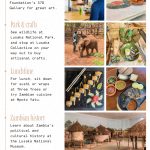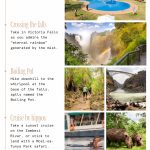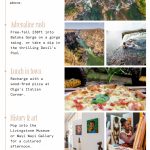Planning Your Trip to Zambia: Essential Information for Travelers
Considering a trip to Zambia? You’re in for an unforgettable adventure! From its awe-inspiring natural landscapes to its rich cultural heritage, Zambia offers a diverse range of experiences for every type of traveler. Whether you’re drawn to the thunderous Victoria Falls, the wildlife-rich national parks, or the welcoming local communities, planning ahead will ensure you make the most of your visit. Here’s some essential information to help you prepare for your journey to this remarkable country.
Visa and Entry Requirements
Before you book your flight, it’s important to check the visa requirements for Zambia. Many nationalities can obtain a visa on arrival at the airport, but it’s advisable to confirm this ahead of time. Alternatively, you can apply for an e-visa online before your trip, which can save you time upon arrival. Make sure your passport is valid for at least six months beyond your planned departure date and that you have at least two blank pages available for entry stamps.
Best Time to Visit
Zambia is a year-round destination, but the best time to visit depends on what you want to experience. The dry season, from May to October, is ideal for wildlife viewing, as animals congregate around water sources, making them easier to spot. This period is also when Victoria Falls is at its most accessible, although the falls are less powerful later in the season.
If you’re eager to see Victoria Falls in full flow, plan your visit during the wet season, from November to April, when the Zambezi River is at its peak. However, be prepared for some trails to be muddy or inaccessible due to the heavy rains.
Health and Safety
When traveling to Zambia, it’s important to take certain health precautions. Malaria is present in many parts of the country, so consult with your doctor about taking antimalarial medication and be vigilant about using insect repellent and sleeping under mosquito nets. It’s also recommended to be up to date on routine vaccines, and you may need additional vaccinations, such as yellow fever, depending on your travel plans.
Zambia is generally a safe destination for tourists, but it’s always wise to practice common sense. Keep your belongings secure, avoid walking alone at night, and stay informed about local conditions.
Currency and Payments
The official currency of Zambia is the Zambian kwacha (ZMW). While major towns and cities have ATMs and accept credit cards, it’s a good idea to carry some cash, especially when traveling to more remote areas. Currency exchange services are available at airports, banks, and hotels, but be sure to check the exchange rate and any fees before converting your money.
Language and Communication
English is the official language of Zambia and is widely spoken, making it easy for English-speaking travelers to communicate. However, learning a few basic phrases in one of the local languages, such as Bemba or Nyanja, can be appreciated by locals and enhance your cultural experience.
Wi-Fi is available in most hotels and lodges, but the speed and reliability can vary, especially in rural areas. Consider purchasing a local SIM card with data to stay connected during your travels.
Getting Around
Zambia is a large country, and getting around can require some planning. Domestic flights are available between major cities and tourist destinations, making air travel the most convenient option for covering long distances. For shorter trips, buses and taxis are common, though road conditions can vary.
If you’re planning to explore national parks or more remote areas, renting a 4×4 vehicle is recommended. Guided tours are also a popular option, providing local expertise and making transportation logistics easier.
Accommodation Options
Zambia offers a wide range of accommodation options to suit different budgets and preferences. From luxury safari lodges and riverside resorts to budget-friendly guesthouses and camping sites, there’s something for everyone. If you’re visiting popular areas like Livingstone or South Luangwa National Park, it’s a good idea to book your accommodation in advance, especially during peak season.
Cultural Etiquette
Zambia is known for its warm and welcoming people, and respecting local customs will help you build positive relationships during your trip. When greeting someone, a handshake is common, and it’s polite to use your right hand or both hands when offering or receiving something. Dress modestly, especially in rural areas, and always ask for permission before taking photos of people or their property.
Adventure and Activities
Zambia is a paradise for adventure seekers. From white-water rafting on the Zambezi River to bungee jumping off Victoria Falls Bridge, the country offers a variety of adrenaline-pumping activities. For those who prefer a more relaxed pace, Zambia’s national parks are perfect for game drives, walking safaris, and bird watching.
Cultural tours, including village visits and craft workshops, provide a deeper understanding of Zambia’s rich heritage and traditions. Whether you’re exploring the bustling markets of Livingstone or hiking through the dramatic landscapes of Batoka Gorge, there’s no shortage of experiences to enrich your journey.



Final Tips
- Pack Smart: Lightweight, breathable clothing is ideal for Zambia’s warm climate, but bring layers for cooler evenings. Don’t forget essentials like sunscreen, a hat, and sturdy shoes for walking.
- Stay Informed: Keep up with local news and weather forecasts during your trip, and register with your embassy if recommended.
- Be Flexible: Zambia is a land of adventure, and sometimes plans can change. Embrace the unexpected and enjoy the journey!
With its stunning natural beauty, diverse wildlife, and rich cultural experiences, Zambia is a destination that promises unforgettable memories. By planning ahead and keeping these tips in mind, you’ll be well-prepared to explore everything this incredible country has to offer. Safe travels!
4o
Recent Comments